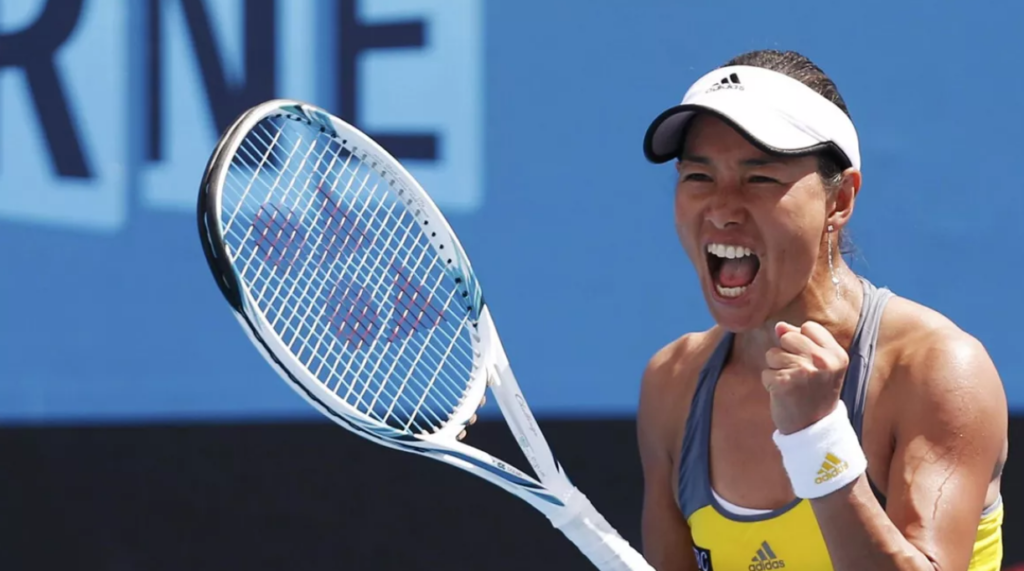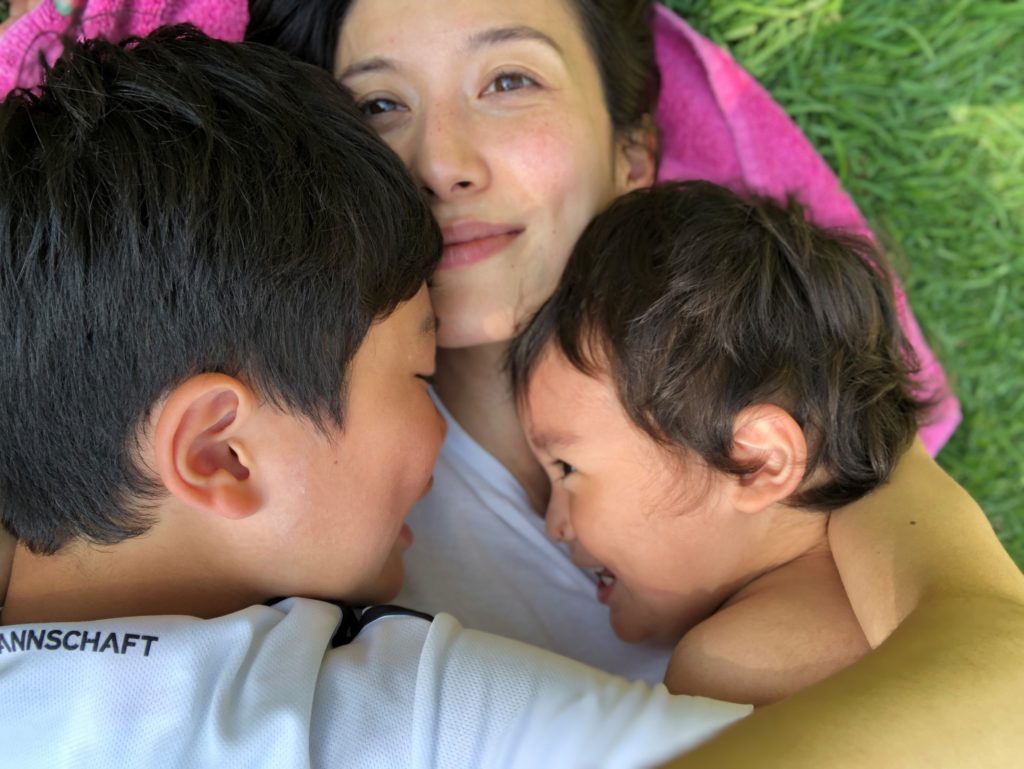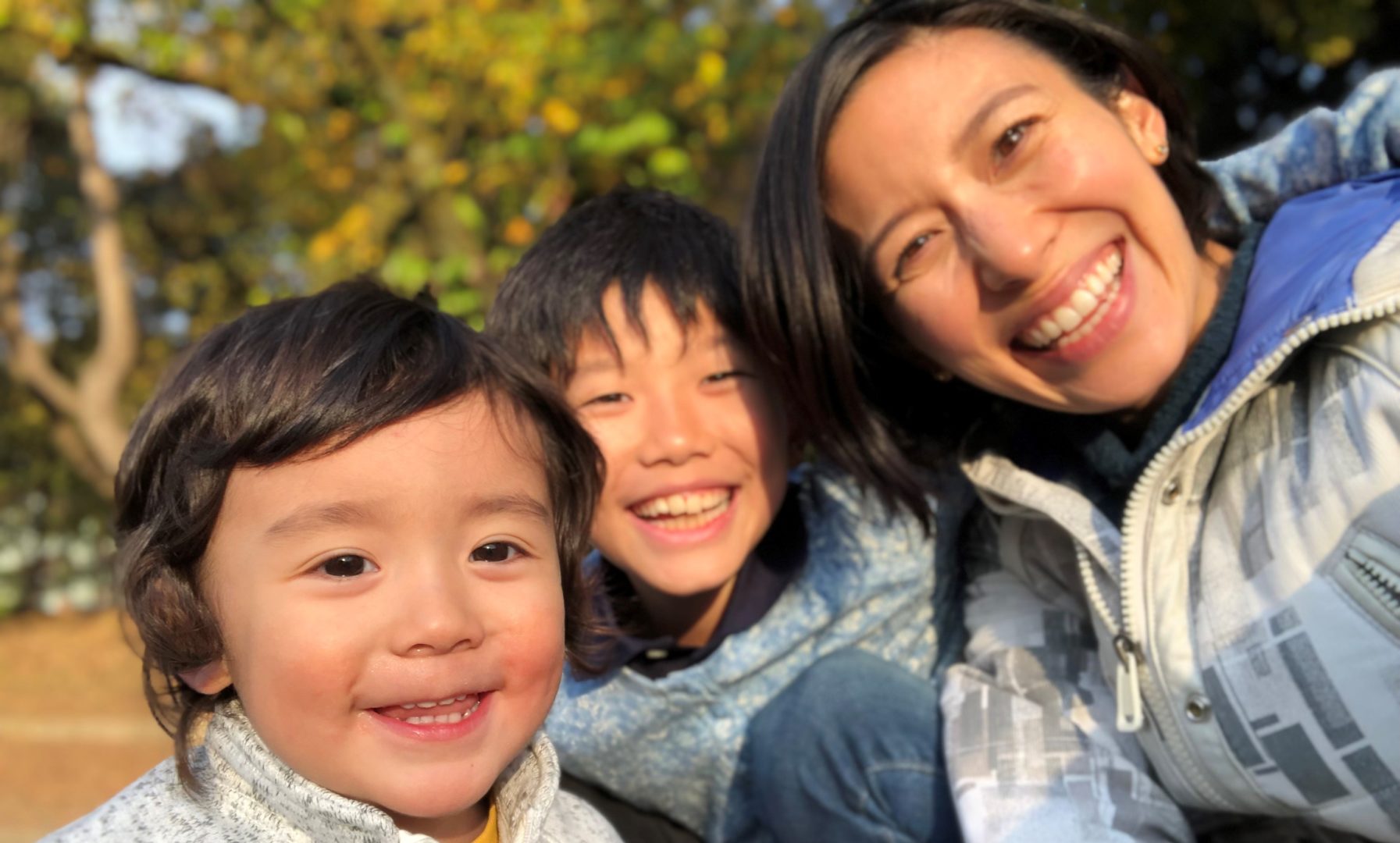It was the end of the summer of 2018, only a few fresh months since my husband had died that Japan was hot with the news of Naomi Osaka having beaten Serena Williams to win the US Open. Something about Osaka’s demure demeanor coupled with her phenomenal athletic force had us all engaged.
I turned the TV on in the bedroom one grieving afternoon. Something as rare as summer snow for me. I mean, turning the TV on—not the grieving part. Hinged upon the sudden rise of Osaka, this Japanese daytime TV show was running a special on “How to enjoy watching tennis.” As popular as tennis is, it had never been as mainstream as national sports like baseball and soccer in Japan. The announcer excitedly laid out basic knowledge about how tennis is a sport from the UK with a noble history and therefore spectators are expected to meet certain standards: maybe wear a collared shirt to the stadium. No flash photography. And for God’s sake don’t be too rowdy in the audience, for tennis is a high-pressure individual sport.
To demonstrate this point, the program followed with footage of Kimiko Daté, a modern Japanese tennis legend and beloved princess-like figure of a player from a good few years ago. In the scene, Daté was up against an Australian player in a very heated moment of the tournament held in Tokyo. Daté’s serve. She faulted. The crowd let out a tangible sigh. Second serve. Double-fault. The entirety of the stadium let out an even heavier, longer, darker sigh.

“Tennis legend Kimiko Daté inspired me by going beyond the sport and speaking up!” [Image credit: Reuters]
No longer able to contain her emotion, Daté snapped back at the crowd and shouted angrily, “Tameiki bakari! (All you ever do is sigh!)” At which point the program returned to the announcer in the studio to reconfirm the unspoken point—that was a no-no.
But for me on that day, the program didn’t land the way it probably did for everyone else. While I sat there somewhat appalled that this was the angle that the program conveyed, something dawned upon me with unerring clarity:
Oh. My. God.
I am HER.
My feelings of connection to Kimiko Daté
My vibrant young husband died a sudden and shocking death one morning, and I was feeling the whole of Japanese society letting out a longstanding sigh in lieu of me. As if to say: You’re a lost cause. With two young children? You’re a pitiable lost cause. I AM Kimiko Daté with the entirety of Japanese society sighing down my back, I thought to myself. And although I had not found the energy to shout back at them like she did, I knew in my heart—this crap is not settling with me either.
I shifted gears to think, you know, if this were an American player, like Serena for example, in a highly pressurized moment where she double-faulted, as disappointing as it would be, you’re going to get at least a few people in the audience who are going to see her drop her shoulders and they will be the first to shout, “You got this Serena! You can do it!”

“I thought, I AM Kimiko Daté with Japanese society sighing down my back,” [Author with her two children]
Well, I have news for you, audience. No matter race, creed, country, or culture. Pity is never kind. Pity is never caring. Pity only deepens the crevasse of separation—your fortuitous circumstance with my pitiable one. And it’s your too-deep-sigh and your too-sorrowful-gaze that deepens that crevasse—not the misfortune of what happened in my life.
The individual sport that is my life
Life, as I see it, is an individual sport. Yes, we have family and friends, but at the end of the day, the way we love and the way we learn, the way we fall and the way we rise again is all an individual path. And so, I learned early on in my grief that I needed to get myself far away from this pandemic of silent pity to survive. If not in my environment, in my heart, for sure. In some weird way, it was Naomi, Kimiko, and Serena that helped me to understand this cultural impact on the individual sport that is my life. I needed to give myself permission to break free from a culture that wasn’t designed to make me feel good.
Don’t get me wrong, I love my culture.
But here’s the thing—I am learning to love myself. So much so that if my culture gets in the way of me taking care of myself I am no longer afraid to shed it. To shed the part of my identity that required the coating of my culture to survive. Just like I have been learning to shed the part of my identity that required my husband for me to survive.
What grief has taught me
And so it is that Grief, of all things, is my teacher of Freedom. And Death is my teacher of the true value of my life—independent of my husband’s life and independent of culture. (He would’ve thought that’s hella sexy anyway.)
Truth be told, as long as I’ve got the rest of my life to live, I cannot live in any other way. I cannot live small, hold my breath, and hope that it’ll be over soon. Lord knows that is not why I am still alive. And that is not the mother my children will grow up watching.
Here’s what I’ve discovered to be my truth:
Win or lose.
I will rise.
Let that be the mother my boys grow up watching.
Mae Yoshikawa is an author and yogi currently based in Tokyo, Japan. Her son Issa has been a camper at Experience Camps since 2019 and already dreams of becoming a counselor one day. Mae is also a global ambassador for adidas and a columnist for Women’s Health Japan. Visit MAEY.live to learn more about Mae and her upcoming book Tsunami, Kizuki: Life’s Tidal Waves + Epiphanies = Love Beyond Time and Death. Instagram @maeyoshikawa / Online Studio: vedatokyo.com
